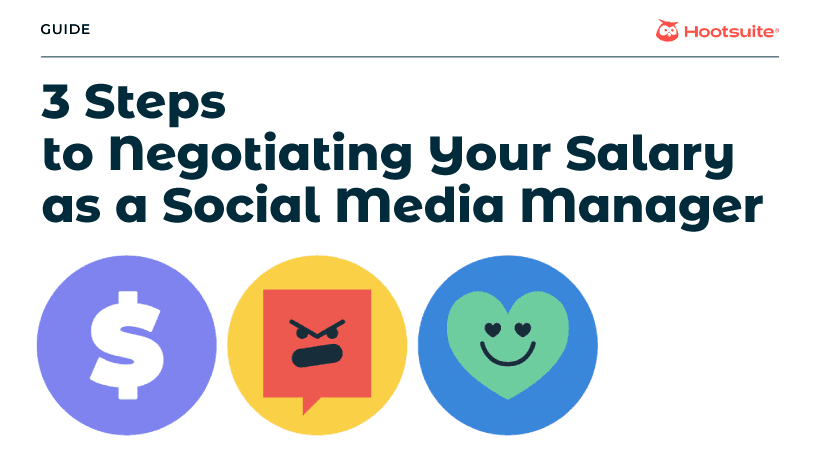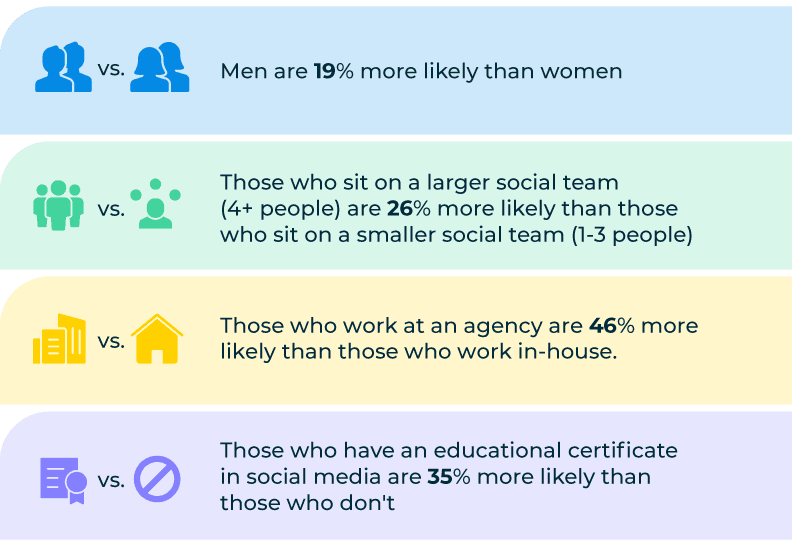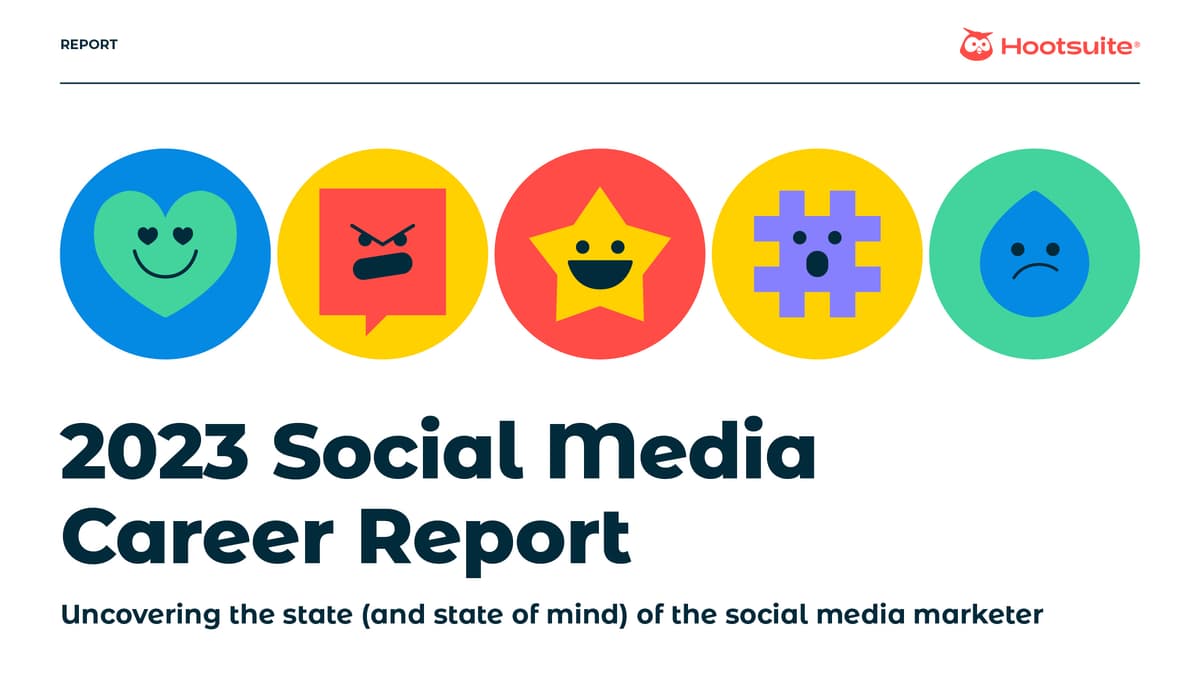Moving up, cashing in, and burning out
Dealing with the dark corners of the internet (and the trolls that lurk there) can affect social marketers’ mental health, even lead to burnout. But incentives like raises and promotions make them feel valued—that is, if they don’t decide to leave altogether.
Social marketers get candid about pay (and other hot career topics)


01
Advocating for higher pay… pays off
In-house and agency social marketers make an average salary of US$67,585 per year—and almost half of them don’t think their earnings accurately reflect the work they do.
Simply put, they feel underpaid.
The majority of social pros also report that their bosses don’t understand social media—yet they get to decide how much a social media manager is worth. Womp-womp.
Truth is, the only people who really know what a social marketer should make are the ones who do the job (even if they are a little biased).
Social media managers should make upwards of $100,000 a year… They’re the face and voice of your company.That’s why it’s so vital for social media managers to be their own advocates when it comes to pay increases—and they seem to be doing pretty well for themselves. Two-thirds (67%) of salaried social marketers have received a pay increase within their company.
How’d they get it? They asked.
Three out of four social marketers who’ve asked for a raise, got one.
But just because they ask for more money doesn’t mean they get as much as they think they should.
Social pros who got a small raise are as salty as those who got nothing
Sample: In-house and agency social marketers (n=3,220)
Source: Hootsuite Social Media Management Career Survey 2023, March/April 2023
It makes sense that social marketers who got a raise they were pleased with are happier in their jobs than those who got a raise they were disappointed with.
But it’s interesting to see that those who got nothing at all are as happy—or as bitter—as those who got something, even though it wasn’t quite what they wanted.
As for the social marketers who’ve never even asked for a raise? They’re just about as happy as those who got an increase they liked. And why ask for a raise when you’re already content with the salary you’re getting?
But this group of social pros who’ve never asked for an increase could also be happy because more than half of them received one anyway.
So it is possible to get a pay increase as a social marketer without asking, but waiting for a raise to fall in your lap is not a reliable tactic. Given how common it is to get one when you initiate the conversation, you might as well take your chances.
Negotiate a raise with confidence
Think you deserve a salary bump, but don’t know how to get one? Our Salary Negotiation Guide can help. Discover how to initiate the conversation and get tips on what to say to make your case.


02
Social marketing isn’t immune to the gender promotion gap
In social media marketing, men are more likely than women to have been promoted—it’s an age-old story across the global workforce, but one we hoped we wouldn’t have to tell, given that almost three in four social marketers are women.
More than half of women have never been promoted while working in social media.
Even sitting on a larger social team doesn’t do much to improve women’s chances of getting promoted—but for men, it’s a different story.
Men who sit on social teams of four or more people are 22% more likely than women who sit on the same size teams to have been promoted. Looks like men have the upper hand there, too.
In general, though, there’s more room to grow when your team consists of several people who hold a variety of positions and have a range of different skills.
Additionally, those who’ve received a social media certificate are more likely to have been promoted than those who haven’t.
Which social pros are most likely to have been promoted?

Sample: In-house and agency social marketers (n=3,220)
Source: Hootsuite Social Media Management Career Survey 2023, March/April 2023
Ask for the damn promotion already
You know you want it. We know you deserve it. So just ask for it. The full 2023 Social Media Career Report is the push you need to make bold career moves.


03
The dark side of social marketing
The job of a social media manager can take a toll—41% confess their work has a negative impact on their mental health.
About 2 in 5 social marketers say their work has a negative impact on their mental health
We looked at several factors that have the potential to hinder mental health, including how much time social marketers spend working on social media each day, how much (or rather, how little) vacation time they take, their work location (office, hybrid, or remote), and whether or not they have flexible work hours and locations.
None of them made much of a difference.
The ones that did? Feeling immensely underpaid and working extra long hours—61% of social marketers who strongly believe they’re not paid fairly, and nearly half of those who work 45 hours or more per week say their work has compromised their mental health.
This underscores the importance of setting boundaries to help keep your work hours in check, as well as getting comfortable with the idea of advocating for better pay.
Most of all, in a job that can send you spiraling, preventing burnout is key. And knowing the signs can help you stop it in its tracks.
Build your dream career and don’t settle for anything less

